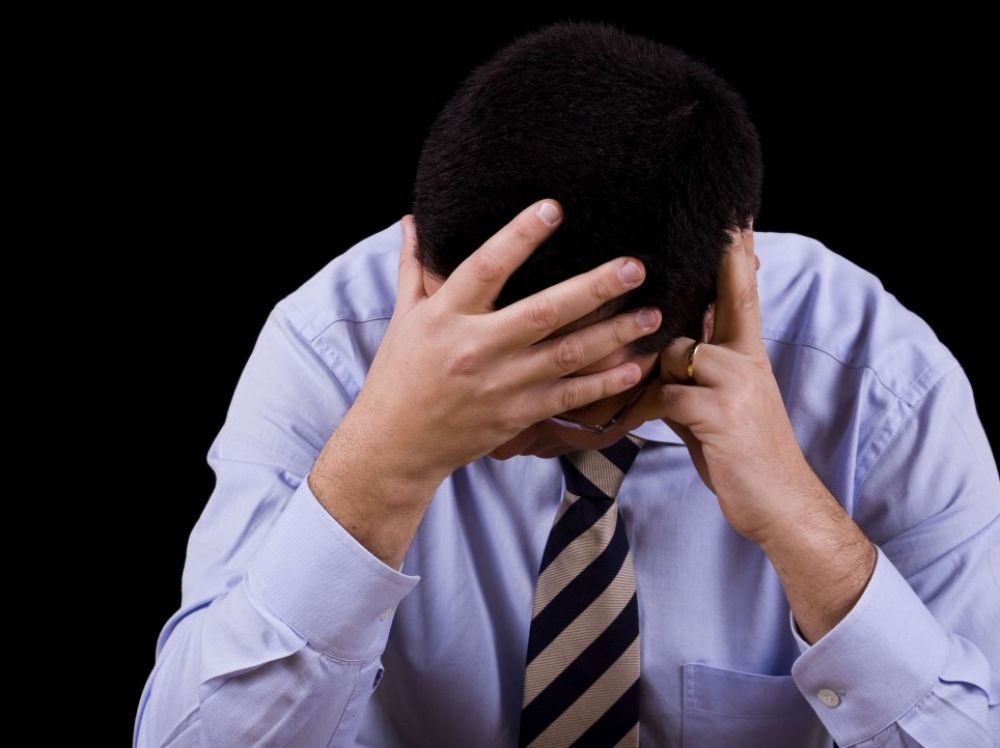All anxious, what to do?
A thread https://abs.twimg.com/emoji/v2/... draggable="false" alt="⬇️" title="Pfeil nach unten" aria-label="Emoji: Pfeil nach unten"> https://menover50mode.com/en/all-anxious-what-to-do/">https://menover50mode.com/en/all-an...
https://abs.twimg.com/emoji/v2/... draggable="false" alt="⬇️" title="Pfeil nach unten" aria-label="Emoji: Pfeil nach unten"> https://menover50mode.com/en/all-anxious-what-to-do/">https://menover50mode.com/en/all-an...
A thread
Angst vor Angst, or anxiety or fear of being afraid according to German-speaking psychoanalysis, which classified anxiety disorder among neuroses. For most people, anxiety is a typical reaction to circumstances considered and perceived to be dangerous, which is quite normal.
Today, in the midst of the Covid-19 pandemic, with the number of infections which continues to grow, the increase in the number of patients in intensive care, the many deaths, the inability to lead the normal life before, there are too many factors that create anxiety in us.
But let& #39;s try to understand better what it is. Which of these factors are the causes and what are the possible remedies?
Anxiety is an emotional state of psychological distress which can be pleasant or unpleasant caused by an alert or fear event and which can also involve those around it. It is a feeling of apprehension or threat accompanied by a series of physiological reactions.
It is a normal reaction to daily stress. No one is totally free from it.
While fear is a reaction to a specific and identifiable condition of immediate danger which can lead to an attack or flight, anxiety, on the other hand, is the reaction to an unidentifiable danger which can generate impotence, constant tension, nervousness and restlessness.
Every day we are inundated with terrifying news highlighting the danger of the pandemic. A danger still under study and not yet well identified. All of this causes uncertainty and a lot of anxiety, anxiety that hurts, makes you sick.
Anxiety that turns into panic (or other somatoform and dissociative disorder) if the situation gets out of hand.
The causes of anxiety in general can be related to hereditary factors, biological factors (excessive amounts of norepinephrine - a stress hormone - or low production of serotonin - a regulator of well-being) or factors unconscious.
We are trying to focus more on the anxiety caused by the current pandemic situation to understand what attitudes we must and can implement.
Right now, we find ourselves in a situation that has suddenly surprised us. We are dealing with an invisible enemy, not well defined, but above all dangerous because he can be present anywhere. Added to that is the waiting, the waiting to know how it will end.
In addition, the fear of getting sick, of being infected, the fear of losing loved ones, the change of our habits, the renunciation of our simplest manifestations of affection such as kisses, handshakes, caresses feed a state of incredible anguish.
But what should we do to avoid or control anxiety?
Anxiety takes hold of us because we try to negatively anticipate something that may happen. In this case, we are talking about anticipatory anxiety. We launch into negative thoughts by imagining the worst. It is quite normal in this type of situation to feel stressed.
Fear, on the other hand, as already mentioned, is an emotion that serves to alert us to danger. For this reason, it is worth considering her as an accomplice friend.
How should we behave in order to deal with the state of anxiety?
How should we behave in order to deal with the state of anxiety?
1. Let& #39;s try to understand first of all the effect it has on our body: lump in the throat, stomach ache or tight muscles?
2. Let& #39;s learn to breathe well at all times of the day. It doesn& #39;t matter that you are familiar with the different breathing techniques, stop for a moment and focus only on the breath, and let it be deep.
3. Focus on a job or sport that requires a lot of attention, while taking the necessary breaks. This will allow us to distract from negative and anxious thoughts.
4. Only consult reliable and secure information once a day.
4. Only consult reliable and secure information once a day.
5. Let& #39;s read a book (why not my book “An Eternal Youth!”)
6. Let& #39;s cook and dedicate ourselves to discovering new dishes.
7. Give ourselves personal moments while enjoying a good herbal tea recommended by an herbalist.
6. Let& #39;s cook and dedicate ourselves to discovering new dishes.
7. Give ourselves personal moments while enjoying a good herbal tea recommended by an herbalist.
8. Let& #39;s play an instrument or listen to a beautiful record that takes us back to good times.
9. Let us follow the preventive measures according to official protocols without adopting pathetic behavior.
9. Let us follow the preventive measures according to official protocols without adopting pathetic behavior.
10. Let& #39;s do some meditation, putting the problems and stress aside and focusing on the present moment.
Beyond the various tips I have listed, it is still essential to consult an expert if you are unable to control this state of anxiety, especially if you experience certain symptoms such as nervousness, insomnia, apprehension, dyspnea, palpitations, tears, weakness and stomach…
…cramps.
This thread can be read here: https://menover50mode.com/en/all-anxious-what-to-do/">https://menover50mode.com/en/all-an...

 Read on Twitter
Read on Twitter https://menover50mode.com/en/all-an..." title="All anxious, what to do?A thread https://abs.twimg.com/emoji/v2/... draggable="false" alt="⬇️" title="Pfeil nach unten" aria-label="Emoji: Pfeil nach unten"> https://menover50mode.com/en/all-an..." class="img-responsive" style="max-width:100%;"/>
https://menover50mode.com/en/all-an..." title="All anxious, what to do?A thread https://abs.twimg.com/emoji/v2/... draggable="false" alt="⬇️" title="Pfeil nach unten" aria-label="Emoji: Pfeil nach unten"> https://menover50mode.com/en/all-an..." class="img-responsive" style="max-width:100%;"/>





